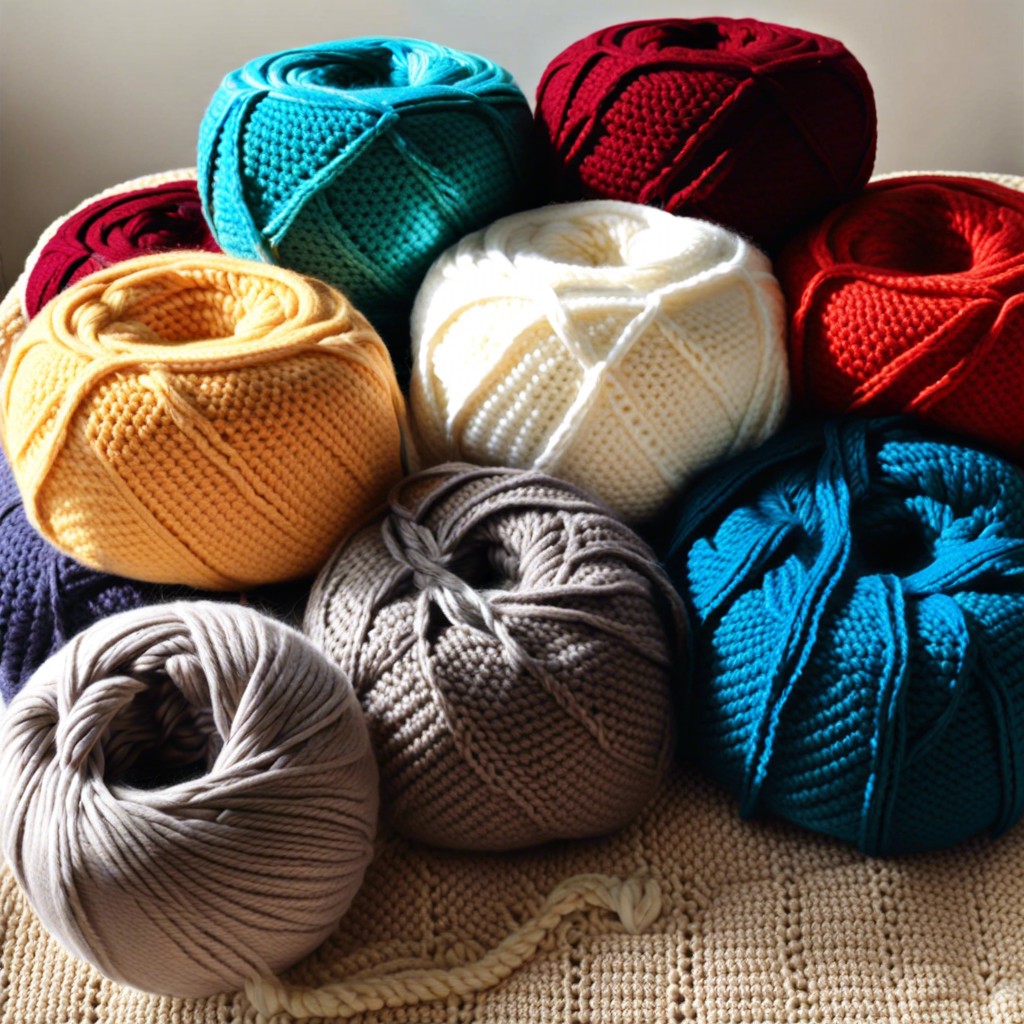Learn how long it typically takes to crochet a blanket and what factors influence the crafting time.
Key takeaways:
- Size of the blanket determines how long it will take
- Thicker yarn means faster progress
- Complex patterns require more time and attention
- Rough estimates for different blanket sizes: baby (10-20 hours), lapghan (20-30 hours), throw (30-40 hours), full-sized (60 hours+)
- Consider your skill level and desired time commitment
Factors Affecting Crocheting Time

When it comes to how long it takes to crochet a blanket, there are several factors that can influence the time it will take. The size of the blanket is a key factor to consider. A baby blanket will take less time compared to a king-size blanket.
The thickness of the yarn you use also plays a role. Thicker yarn will work up faster than thinner yarn. Consider using bulkier yarn if you want to finish your blanket more quickly.
Furthermore, the complexity of the pattern can impact crocheting time. A simple single crochet blanket will work up faster than one with intricate stitch patterns or colorwork. Keep this in mind when choosing a pattern for your project.
Size of the Blanket
When it comes to crocheting a blanket, its size plays a crucial role in determining how long it will take to complete. Larger blankets will naturally require more time and effort compared to smaller ones. Consider the dimensions of the blanket you want to make, as a baby blanket will take significantly less time to crochet than a king-size cover. Keep in mind that the larger the blanket, the more yarn you will need, which will also impact the overall time required to complete the project. So, if you’re short on time, opt for a smaller blanket to finish quicker and get cozy under your creation sooner.
Yarn Thickness
When it comes to yarn thickness, keep in mind that the thickness of the yarn you choose will impact how long it takes to crochet a blanket. Thicker yarns can work up faster as each stitch covers more surface area, leading to quicker progress. Thinner yarns will require more stitches to cover the same area, making the process take longer. Consider your preferred yarn thickness and how it aligns with the time you have available for your project. Ultimately, choosing the right yarn thickness can help you manage your time effectively and enjoy the crocheting process.
Complexity of the Pattern
The complexity of the pattern you choose for your crochet blanket can significantly impact the time it takes to complete. Intricate stitch patterns, color changes, and detailed designs will naturally require more time and concentration to work through. Opting for a simple single stitch or basic pattern will speed up the crocheting process. Keep in mind that fancier patterns may demand more yarn and careful attention to ensure accuracy. Choose a pattern that matches your skill level and desired time commitment. A more intricate design may take weeks or even months to finish, while a simpler pattern could be completed in a fraction of the time. Be mindful of the pattern complexity when planning your crochet project timeline.
Estimated Time Frames for Different Sizes of Blankets
When it comes to crocheting a blanket, the size plays a huge role in determining how long it will take. A baby blanket may take around 10-20 hours, a lapghan around 20-30 hours, a throw around 30-40 hours, while a full-sized blanket can take 60 hours or more. Keep in mind that these are rough estimates and can vary based on individual crocheting speed and experience. The larger the blanket, the more time it will generally take to complete. Chunky yarn can help speed up the process, while intricate patterns with detailed stitches may slow you down. If you’re a beginner, it might take a bit longer to finish a blanket compared to a more experienced crocheter. So, grab your yarn and hook, and enjoy the journey of creating a cozy blanket!
Related Stories
- How Long to Crochet a Blanket: Your Ultimate Time Guide
- How Long Does It Take to Crochet a Sweater: Get Cozy in No Time
- How Much Yarn to Crochet a Blanket: Tips and Guidelines
- How to Crochet a Baby Blanket: Simple Steps for Beginners
- How Much Yarn for a Crochet Blanket: Detailed Guide and Helpful Tips
